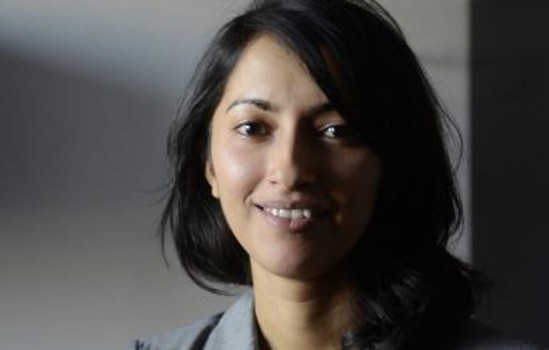About the champion:
Shreya is the Founding Executive Director of the Penn Center for Community Health Workers, and an Associate Professor at the University of Pennsylvania Perelman School of Medicine. Her full bio can be found here.
1. Why are you passionate about primary care?
I once heard someone at a SGIM conference say: “People think that primary care docs aren’t specialists. But we are. We specialize in the patient.” Primary care is unique in allowing one the ability to get to know their fellow human beings over a life course. Primary care also allows one to be of service in a very concrete, non-theoretical way. If a patient has an earache or an itchy rash, you can help with that! The immediacy of this can help to break one’s self-absorption.
2. If you had a magic wand that you could wave to change one thing (such as a policy or inequity) in primary care, what would it be?
I believe that health inequity is not just an imbalance of disease, but rather an imbalance of power. There is a huge power differential between the providers of primary care and the people we serve. So, if I had a magic wand I would remake the primary care workforce so that it reflected the people we serve. In particular, I would ensure that Community Health Workers –trustworthy individuals who come from within the communities they serve—were centered in every primary care team.
Community Health Workers like Ashlee Harris are the new American health workforce. While many other health-care professionals are defined by their training, Community Health Workers are defined by who they are and what they do. They come from within the communities they serve and thus are a diverse reflection of disadvantaged Americans: 65% are black or Latinx, 23% are white and 10% are Native American. They may not have extensive formal schooling, but many have lived expertise of racism and financial hardship. Community Health Workers are typically selected on the basis of attributes such as altruism, empathy, and listening skills. They are trusted because they are trustworthy.
3. What one thing about your work do you want people working outside primary care to know or understand?
Primary care –and the health industry write large-- is facing twin imperatives. Health organizations who wish to stay relevant in the coming decade will need to solve critical labor shortages and effectively address the social drivers of health and health spending. Deloitte recently estimated that health inequities account for around $320 billion in annual healthcare spending, a figure that could reach $1 trillion by 2040 without effective action. The healthcare industry is struggling on both fronts, primarily because of a lack of boldness and an instinct to protect its own entrenched power.
This is the time to transfer power to Community Health Workers: a boots-on-the-ground workforce with lived expertise of inequity who can address the upstream causes of poor health before they turn into full-blown health crises. If primary care leaders can take this opportunity to reimagine our health workforce in an evidence- and equity-based manner, the effects will be transformational. There are only 60,000 community health workers in the United States today compared with 5 million nurses. The shift to a workforce grounded in the communities they serve will radically transform care delivery and change the distribution of wealth and power in healthcare.
4. Looking back on your career, what’s the most significant contribution to primary care that you or your team have made?
My team developed IMPaCT, an evidence-based system for hiring, training and supporting Community Health Workers. It has been an incredible journey to partner with Community Health Workers, researchers, business leaders, primary care providers and others to create a model that enables Community Health Workers to do their best work. Over the past decade, IMPaCT has become the most widely used Community Health Worker program in the United States, in use across 20 states. IMPaCT has been tested in multiple randomized controlled trials which demonstrate benefits in cost, health and patient satisfaction– $2,500 saved per patient in year 1, improved mental health, 35% decrease in hospital days and 94% net promoter score. IMPaCT returns $2.47:1 to payers within the first fiscal year. I hope that our work will help primary care continue to move its center of gravity closer to the communities we serve.
Recent News
March 19, 2024
February 28, 2024
February 22, 2024 | Conversations on Health Care
May webinar highlights: “The Commercial Market: Alternative Payment Models for Primary Care” Nate Murray explains w… https://t.co/KX9Wi2w6oY —
10 months 1 week ago
@CMSinnovates’ primary care strategy is rooted in a 2021 @theNASEM’s report which called #primarycare “foundational… https://t.co/glbPxvCysg —
10 months 1 week ago
@CMSinnovates has a new #primarycare strategy, envisioning “ACO-based primary care model tests that may focus on pr… https://t.co/aJGF1z411l —
10 months 1 week ago
- Page 1
- ››
Secondary menu
Copyright © 2024 Primary Care Collaborative




